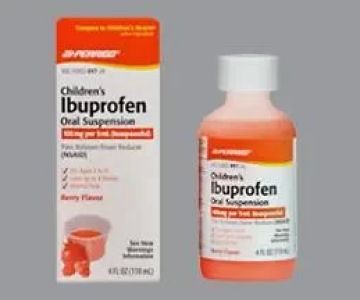What Age and Weight Can Children Have Oral Tylenol? A Comprehensive Guide
Trending Blog Articles
Popular Dental Blog Posts
 Can Adults Safely Take Children's Ibuprofen Oral Suspension? What You Need to Know
Can Adults Safely Take Children's Ibuprofen Oral Suspension? What You Need to KnowExplore whether adults can take children's ibuprofen oral suspension safely. Learn about proper dosage, risks, and expert advice to make informed decisions about pain relief in the US.
 When Feeding Children with Oral Sensitivities: Importance of Neck 15 Degree Extension
When Feeding Children with Oral Sensitivities: Importance of Neck 15 Degree ExtensionLearn how neck 15 degree extension can improve feeding safety and comfort for children with oral sensitivities. Discover practical tips, expert advice, and real-life stories at Dentistry Toothtruth.
 What Is the Best Toothpaste for Children? A Complete Guide for Parents
What Is the Best Toothpaste for Children? A Complete Guide for ParentsDiscover the best toothpaste for children. Learn about the top options for fluoride toothpaste, natural alternatives, and how to choose the right toothpaste for your kid's dental needs.
 How to Manage Dry Mouth in Elderly People Through Diet and Lifestyle
How to Manage Dry Mouth in Elderly People Through Diet and LifestyleDiscover effective ways to manage dry mouth in elderly people through diet and lifestyle changes. Learn expert tips for improving oral health and enhancing comfort.
 Dental Hygiene for the Elderly: Essential Tips for Maintaining Healthy Teeth
Dental Hygiene for the Elderly: Essential Tips for Maintaining Healthy TeethDiscover essential dental hygiene tips for the elderly to help maintain healthy teeth and gums. Learn about the best oral care routines, products, and solutions tailored for senior dental health.
Categories
Popular Dental Clinics
 Dr. Stephen M. Buchanan, DDS3.0 (10 review)
Dr. Stephen M. Buchanan, DDS3.0 (10 review) Gentry Dentistry4.0 (164 review)
Gentry Dentistry4.0 (164 review) TheWisdomToothDoc4.0 (296 review)
TheWisdomToothDoc4.0 (296 review) Second Street Dental4.0 (423 review)
Second Street Dental4.0 (423 review) Lanier Family & Cosmetic Dentistry4.0 (412 review)
Lanier Family & Cosmetic Dentistry4.0 (412 review) Sommers Family Dental4.0 (1042 review)
Sommers Family Dental4.0 (1042 review) Top Dental Blog Posts
Most Searched Dental Clinics
Hot Blog Topics
 The Importance of Oral Health Education During Pregnancy for a Healthy Pregnancy
The Importance of Oral Health Education During Pregnancy for a Healthy Pregnancy Best Tips for Brushing Your Teeth Properly for Healthy Gums: Essential Techniques for Oral Health
Best Tips for Brushing Your Teeth Properly for Healthy Gums: Essential Techniques for Oral Health Why Skipping Dental Checkups Can Lead to Bigger Oral Health Problems
Why Skipping Dental Checkups Can Lead to Bigger Oral Health Problems Advantages of Porcelain Dental Restorations
Advantages of Porcelain Dental Restorations How Can Diabetes Cause Tooth and Gum Problems? Preventing and Managing Oral Health Issues
How Can Diabetes Cause Tooth and Gum Problems? Preventing and Managing Oral Health Issues Healthy Habits for Promoting Good Oral Health and Hygiene: Tips for a Healthy Smile
Healthy Habits for Promoting Good Oral Health and Hygiene: Tips for a Healthy Smile 